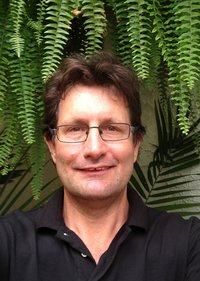

by Gord Grant PhD, RAc
Our move to the new clinic space has been an opportunity to re-examine our vision of what our work is aiming to be . I think anyone – individuals or groups, a single person or a community organization, a family business, or a corporation – can benefit from re-examining and stating their vision and reason to be from time to time. For us at The Acupuncture Turning Point, we declared that we intend to foster “Optimum, accessible, and sustainable healthcare for all, through quality services and partnerships, and the mindful integration of traditional and modern systems.”
A vision is supposed to bigger than you are, to be out of your reach, and to endure through the changes of time – otherwise, it is not a vision to strive for! However, no matter how noble or worthy, the risk of a vision that is too grandiose is that it can be perceived as either naive or impractical, or too unobtainable to translate into action and substance in the moment.
The ATP team is having renewed conversations amongst one another, both as a coordinated group, and with our clients. We are reaffirming our vision, the place beyond practicality and plans, but also, we are challenging each another to evolve how that translates into the tangible details of how we practice. In the work of healthcare, some questions are reoccurring and defining themes. We ask them of ourselves and others.
Are we curing people? No; that is a powerful word that not even heroic western medical interventions use very often.
Are we helping people cope? Maybe for many, but this is often in the mindset of some clients, and not necessarily of our own vision for how we want to engage them.
Are we helping people come back to normal function, and be resilient? Yes, often, that has become a large part of our strategy and our success from the beginning. We treat each client as a whole person, looking at the many variables and factors that are important to each, to not only facilitate a return of “normal”, but also to support his or her awareness, confidence, and independence regarding goals in health and function.
But over time we have realized that our focus has been shifting toward helping people beyond resiliency. Being resilient is about coming back to “normal”, and the majority of clients we meet, simply never can go back in time to being “normal” as they once knew, for various reasons of their unique situations. Just like in our own personal lives as therapists, we meet people where life events have changed the nature and rules of the whole game. Situations arise in all of our lives that change everything – like getting an injury, be it an acute accident or an insidious chronic one, like getting a disease, which essentially may be resolved symptomatically and functionally, but has created a new vulnerability in body and/or mind. And the most profound game changing culprit is the unavoidable yet awkward (and often unspeakable) reality of growing older. Yes, our organs and tissues do have “shelf lives”, and they don’t just fully operate until the day we die. Fit or not fit, no matter how healthy and proactive we have been, we learn (or not) to let our body (and mind) go in stages, managing the process of becoming less capable. Here, the bumper falls off, or the engine doesn’t run the same any more, or the radiator leaks. Unlike our cars which we can go to the mechanic to get new parts, simply going to the doctor doesn’t fix us like new again.
Less obvious than aging, but still profound, are the impacts of our relationships over time, and the emotional and practical demands these put on us as whole people. Marriage and divorce, children, friendships fostered and lost, the death of loved ones, engaging a career close to our hearts, being under employed, or working for money to pay the bills each month, or simply struggling to have time for yourself beyond the growing obligations of life are difficult adjustments to make. “Game changers” come to us one by one in time, and often imperceptibly create a whole new sense of “normal” health and vitality.
So in the hub of these significant changes, we meet our clients. It is our growing awareness to practice in ways that support people adapting to the changes in their unique life circumstances. We facilitate people learning to thrive in their new lives, not necessarily returning to an old “normal”. Simply put, we help people when they are making critical and necessary turning points in their health and well being.




